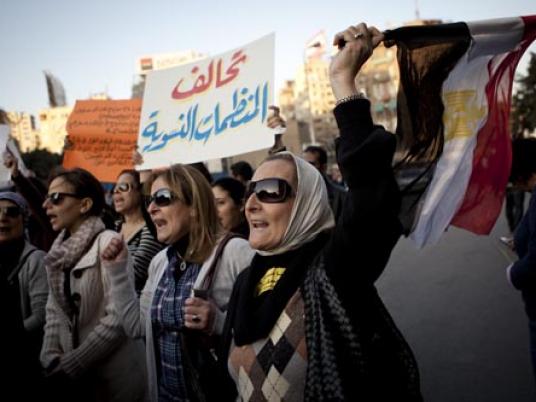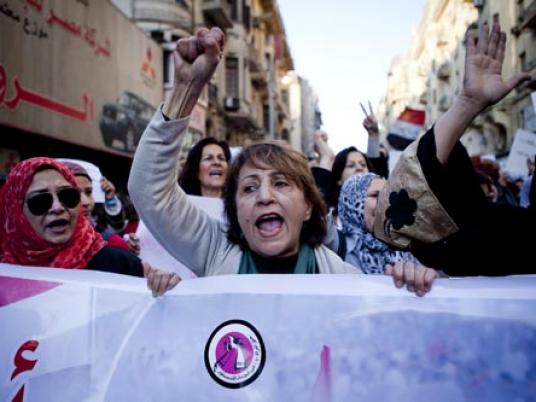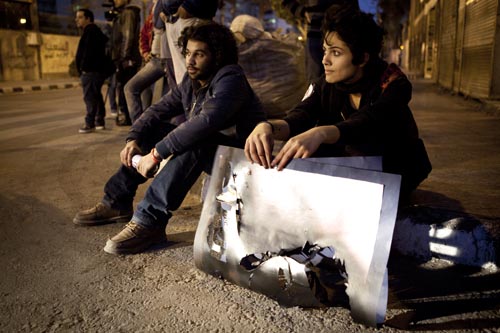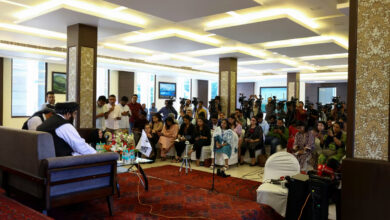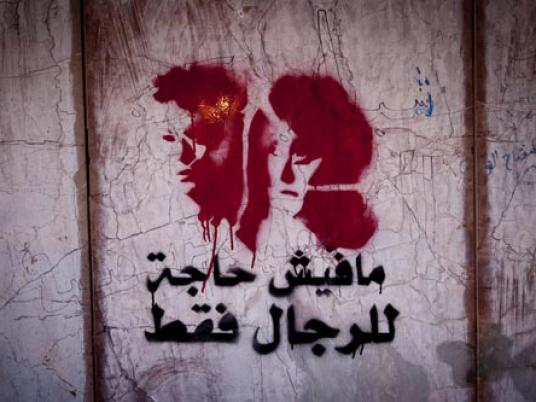
On International Women’s Day, thousands of women in Cairo marched from the Journalists Syndicate to the Parliament building, summing up their demands on a large banner leading the protest reading: “Citizenship rights and freedom.”
The protesters’ main demands are a 50 percent quota for women in the constituent assembly that will draft the constitution and the preservation of laws issued in recent years that ensure women’s rights. The women, joined by some men in solidarity, chanted against the ruling military council and the Muslim Brotherhood, accusing both of hijacking the revolution and conspiring against the people, and women in particular.
After suffering from weak representation in Parliament and on the political scene in general, the women’s main demand was to have half of the constituent assembly be composed of women.
“We have a cause and we have a role, we want out right in the constitution,” they chanted.
There are concerns that without equal representation of women, the Islamist majority in Parliament could neglect to incorporate assurances of equality into the constitution.
“The woman has participated in the revolution just like the man, she has to take her rights in everything,” says Nermeen Abdel Moneim, member of the Progressive Women Union, who was participating in the march.
The women held up pictures of the revolution’s female martyrs, highlighting women’s participation in the uprising, which they say has been followed by a decline in their rights.
Attacks have been launched on laws regarding divorce, custody and other issues that protect women’s rights, which were issued during former First Lady Suzanne Mubarak’s leadership of the National Council for Women. The laws are dubbed “Suzanne’s laws,” and have been asked to be abolished as remnants of the old regime.
However, the women in the march and women’s rights activists insist that these laws are a result of the struggle of women for decades and not a gift from the former first lady. The protesters chanted “We are not Suzanne’s daughters, women’s rights are human rights,” and “The women have one demand, we will not abandon our gains.”
The protesters insisted that their demands are not only women’s issues but are a part of the revolution’s demands, chanting the revolution’s main slogan of “ Bread, freedom, social justice.”
As they passed by the American embassy, the protesters chanted against the ruling military council.
“We demanded bread, equality and freedom and they kneeled to the Americans,” they chanted as a response to the recent release of Americans under investigation in relation to the criminal charges against foreign NGOs in Egypt.
Reaching the Parliament, the chants turned against the Muslim Brotherhood, who hold over 40 percent of the Parliament, as the protesters blamed them for dropping women’s rights from their agendas. At the Parliament the crowd chanted, “We revolted in the square and they took Parliament.”
The march was mainly organized by women’s rights organizations. The Free Egyptians Party and the Social Democratic Party had a symbolic participation, and activists, such as Kefaya movement leader George Ishaq, came to support the march.
“The condition of women in Egypt has deteriorated badly,” said Ishaq. “We want women to regain confidence in their abilities.”
Graffiti artists accompanied the march, spraying quotes from old Egyptian movies that inspire gender equality on buildings.
One piece of wall art comes from a song from the series “He and She,” starring Ahmed Zaki and Soad Hosny. Hosny, whose character teaches in an all-girls school, wants to teach her students the value of being women. The lyrics, “The girl is equal to the boy,” now adorn a wall in downtown Cairo.

